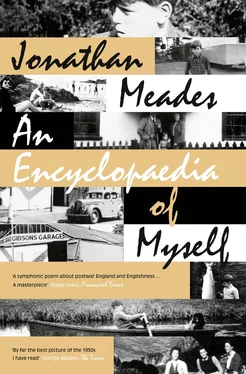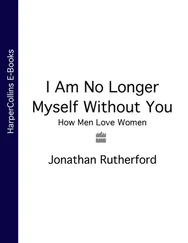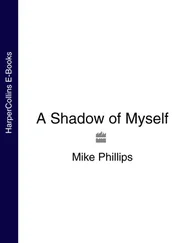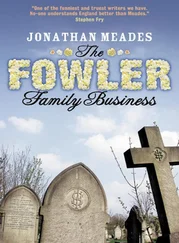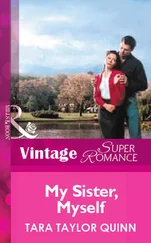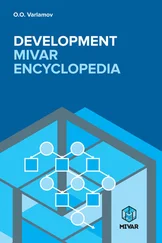I dreamed of malevolent sheep surrounding me near an isolated railway halt in a landscape of drystone walls and tufty grass. Every attempt to escape over those walls was thwarted by further flocks who penned me in, baaing at high volume till a Wolseley police car arrived to apprehend me.
I dreamed of a lugubrious, flickeringly lit gilded room, with glimmering fabrics, a chaise longue, heavy dark scarlet velvet curtains from behind which, terrified lest I make a sound and am discovered, I spy on a brooding Napoleon. (I had never witnessed a performance of Hamlet . But I had read it, slowly, painstakingly. More importantly I had seen stills of distant, dusty productions. Paintings of prince and arras excited me.) There was the flash of a blade, a vegetal tearing and with it a rent in the curtains. Many years later it occurred to me that some part of my brain had, in REM, conflated the names Napoleon and Polonius and had decreed that my fate should be the latter’s at the former’s hand: he was, after all, still Boney. I no doubt belong to the last generation of British children to be casually warned of that spectral ogre. Mr Coleman used to caution me: ‘Old Boney’ll get you if you dawdle about there, Sunny Jim.’
If only! I wanted him to try to get me so I might experience the thrill of being quarry. I would of course escape. ‘There’ was the covered alley in the middle of the terrace on the other side of the road. It ran between the house where Roger lived with his parents and grandmother and its neighbour: the first floors had a party wall, a sliver of both ground floors had been sacrificed to this narrow passage. It was where I waited for him to come out to play. It led to the perpendicular alley between the Rose and Crown’s car park and the gardens of this terrace of about twenty houses (red brick, c .1912, each with a name incised in stone beside the front door, as well as a mere number like ours). Mr and Mrs Coleman’s house was three away from Roger’s.
Mr Coleman, a grocer on his day of rest (Wednesday half-day closing excepted), would open his back gate and say testily: ‘Can’t you nippers keep it down!’
His tone towards me when I skulked silently was more jocular.
‘Can’t do better than join ’em when you’re big enough, Sunny Jim,’ he’d instruct me, well-meaningly, on Wednesday evenings whilst Bishop Wordsworth School’s blanco-gaitered Sea Scout Troop, led by a youth twirling a baton with thrilling abandon, marched past hammering their drums and bugling their one and only tune under the martinet’s eye of a naval-uniformed and atypically spruce William Golding.
‘You make sure you eat them greens, Sunny Jim,’ Mr Coleman instructed me, well-meaningly, whilst I queued on my mother’s behalf at Mr Rose’s vegetable van.
‘Enjoy your pop, Sunny Jim!’ he’d instruct me, well-meaningly, whilst I bought my two bottles (fluorescent lime and American cream soda) from the gleaming Corona lorry. I resented being addressed as Sunny Jim. But I didn’t show it, would not have dared answer him back, for I knew that the reason the Colemans never smiled was that their son had been taken from them. Listening to the whoops and cries of their boy’s living contemporaries can only have intensified their loss. There were now just the two of them. It was for only five years that there had been the three of them. It must have been grief that made Mrs Coleman pendulous-breasted, gingery-grey, myopic, musty, thin-lipped: staleness surrounded her. It must have been grief that made Mr Coleman glue hair from faraway sources to his pate. My bald father mocked these strands as grocer’s stripes . They gleamed like oily feathers. The coarse artifice was appealing to a child who preferred plastic to leather, formica to wood, who delighted in prostheses. Every morning save Sunday the Colemans drove in an old Ford delivery van to their little shop where they whiled away their days till they too died. They left Little John Coleman in heaven and in a shaded corner of All Saints churchyard. The dead could be in two places simultaneously. At least two places: Mowbray Meades was in heaven, he was in all his family’s heart, he was in a war grave at Lille, where on 9 July 1918 he had succumbed to pneumonia. Afterlife and transubstantiation, prayer, angels, hell, miracles, holy rocks, voices from above, flying horses, visitations and the very notion of the sacred, are creations of aberrant hallucination and desert fasts which might have been expressly devised to ensnare credulous children. There’s no more willing religious warrior than the child ignorant of everything save what he is instructed in by his abusive imam, himself in turn a victim of doctrinal abuse – so the wheel goes round: tradition is no more meritorious than is sincerity. The flowers were fresh each week (and still are; a dwarf pine has been recently planted). The tiny headstone was scrubbed.
John Coleman
February 10th 1952
Aged 5 years and 6 months
Happiest Memories
I never set eyes on this valetudinarian boy, the subject of whose life was its imminent ending. He was my senior by six months. He lay dying less than fifty yards away across the road whilst I, a longer stretch before me, climbed high in plum trees and hid from marauding Comanches in a gap in between Kalu’s hedge, a trunk seeping fat beads of tawny resin and a woven hurdle. He was too feeble to play. He lived in bed in a blanched room matt with sunbeams. His days were all beef tea and expectoration, plumped pillows and the doctor’s hushed voice. I knew of his secret existence through murmured hearsay, through rumour’s mysterious seepage. He wasn’t talked about. He was hidden away. My parents never referred to him, as though infant mortality were itself infectious like polio, myxomatosis for children, the viral Boney of those years that lurked in wait to maim our bodies, to steal them forever.
Infant mortality? Any mortality. Death might go dogging everywhere but how was I to know? Intelligence of the final finality was only grudgingly vouchsafed me by my parents. For all they spoke of death, I might have believed that we live perpetually, growing ever more crooked, more and more dried up, more rasping, more fearful. (I obviously didn’t know that it was death’s proximity that caused the eyes of the very old to communicate unimaginable terror.) Did my parents talk of it in camera where the renchild could not hear? I doubt it. It hurt my father too much to consider it. Death was denied by near-silence: what was not spoken of did not exist. So it was not addressed, nor were dying and the invisible invaders which honeycomb this internal organ and make leather of that one. The names of the dead were dropped from conversation, as one might drop that of a disloyal friend. Death seemed to be a kind of disgrace. The dead were somehow culpable. They brought it upon themselves. The rare times they were remembered, it was with irked brusqueness. This quasi-muteness might have been designed to protect me from a truth that was evidently considered just about unspeakable. It more likely derived from the near-paralysis that any thought of his father’s death caused my father.
George Meades had died at the age of forty-one in 1920 when his third child and second son was eleven years old. John Meades, who twenty-seven years later would become my father (twenty-six, if measured by the Seathwaite Conception), considered, so far as I could ascertain, that this premature departure was a gross betrayal, like that of a star batsman who has too easily surrendered his wicket to his team’s cost. (This must be an exceptional matter: I have never before used a cricketing simile.) Apprised by life’s whispering campaign that all this ends for all of us, I asked my father about his father’s death. He regarded me with astonished hurt that turned into a defensive flinch I had not seen before, it was an expression of vulnerability that a more malign (or less timid) son might have exploited. I had neither the nous nor the will.
Читать дальше
